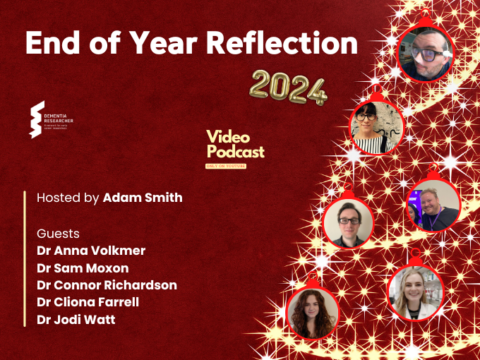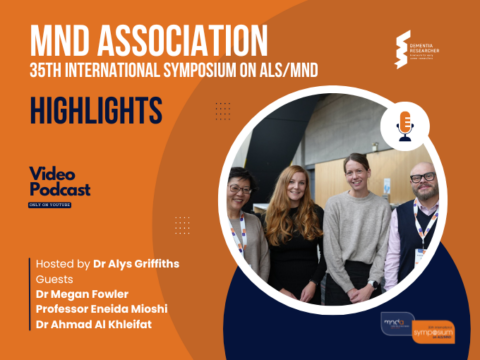We’re finishing the year with 5 special themed podcasts sharing some of the narrated blogs we’ve published throughout the year, introduced by Adam Smith.
If you’re just catching up, earlier this week we covered some science, we had tips for new researchers, the importance of involving people in research and today, we have four more blogs on the topic of care and psychosocial interventions. It is so important that care research be undertaken alongside the basic science, helping to ensure we can look after those who live with the disease today, whilst also working to understand and prevent the disease.
Dr Anna Volkmer, Senior Researcher and Speech and Language Therapist at University College London narrates her blog titled “Dementia care over the last 25 years: From “there is nothing we can do” to “a range of interventions”.
Dr Alys Griffiths, Psychologist, Lecturer and Research Tutor at The University of Liverpool discusses her research in this blog “Relational Councelling as a Psychsocial Intervention for Dementia”.
Nathan Stephens, PhD Student at University of Worcester from the Meeting Centres Project reads his blog “Rebalancing Gender in Care“.
Dr Prerana Sabnis, former Dementia Researcher Staffer writes about the work of Dr Aida Suarez-Gonzalez in this blog titled “How the COVID-19 Lockdown Impacted People with Dementia and their Carers”.
If you enjoyed these blogs, remember that we have a dedicated blogs podcast channel, where we publish several new posts every week – subscribe in your podcast app, or read them all on our website.

Like what you hear? Please review, like, and share our podcast – and don’t forget to subscribe to ensure you never miss an episode.
If you would like to share your own experiences or discuss your research in a blog or on a podcast, drop us a line to adam.smith@ucl.ac.uk or find us on twitter @dem_researcher
You can find our narrated blogs are now also available in a dedicated podcast feed – so you can listen while you’re on the move.
This podcast is brought to you in association with Alzheimer’s Research UK and Alzheimer’s Society, who we thank for their ongoing support.

 Print This Post
Print This Post





